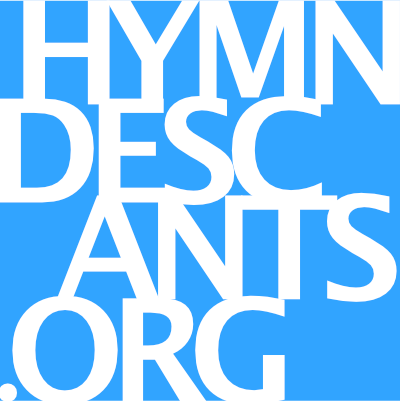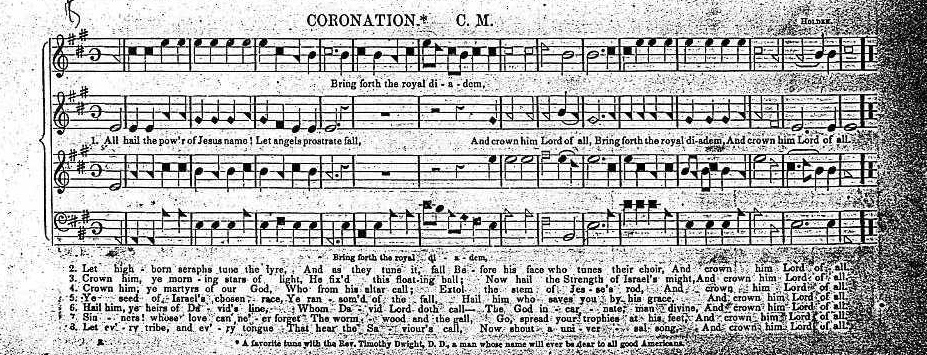Descant to the hymn tune CORONATION. Free score with harmonized descant. (Audio: Prologue ad lib + hymnal verse + descant verse) [Score and audio sample updated 2023]Free score.
1 Hymnal
All hail the power of Jesus' Name!
Let angels prostrate fall;
bring forth the royal diadem,
and crown him Lord of all!
bring forth the royal diadem,
and crown him Lord of all!
2. descant (orig. final verse)
Let every kindred, every tribe,
on this terrestrial ball,
to him all majesty ascribe,
and crown him Lord of all!
to him all majesty ascribe,
and crown him Lord of all!
Edward Perronet wrote "All hail the power of Jesus' name" while he served as a missionary in India, the hymn first appearing in the November, 1779 issue of Gospel Magazine. These words have been translated into virtually every language in which Christianity is known. A cheerful Englishman of Huguenot descent, he was an associate of the Wesleys (until he wasn't), and a satirist of the Anglican church, which had scant appreciation of his humor. Eight years later, John Rippon published his own adaptation, replacing some of Perronet's language with his own, including a different final stanza (both final verses are included here). In his revision Rippon entitled the hymn "The Spiritual Coronation," hence the name of the tune - an odd choice for a setting composed in George Washington's first term by an American composer, Oliver Holden, who had served in Washington's army. Possessed of only a few months of formal schooling, Holden established himself as an 18th C. composer and compiler of hymn tunes, along with other professional interests - carpenter, real estate agent, landowner, legislator, and pastor. Among his books on sacred music are The American Harmony (1793) and Union Harmony, or a Universal Collection of Sacred Music (1793 & 1801); he also taught 'singing schools' in the same fashion as William Billings. Holden wrote many hymns, of which CORONATION - written specifically for this text - is the most well known, and has since been in continuous publication. The image below is in an early, shape note form; his original was in round note similarly voiced, but with an engraver's error in the alto. Typical of the period, the melody was in the tenor; the first publication in a conventional SATB setting with the tune in the soprano appears to be in The Sabbath Hymn and Tune Book, edited by Lowell Mason, et al. (1859)
(This descant is opus 1, written for the St. David's Treble Choir, Kennebunk, Maine.) Updated: April 2023
Listen to the original (in the key of A, a third higher, tune is in the tenor)
References
The Hymnary, The Sabbath Hymn and Tune Book (Ed. Lowell Mason, et al., New York 1859)
UMC Discipleship Ministries, History of Hymns: "All Hail the Power of Jesus' Name" (C. Michael Hawn)
Includes introduction and two verses:
Let every kindred, every tribe on this terrestrial ball,
To him all majesty ascribe, and crown him Lord of all!
– Edward Perronet, 1779
Oh, that with yonder sacred throng, we at his feet may fall!
We'll join the everlasting song, and crown him Lord of all!
– John Rippon, 1787


